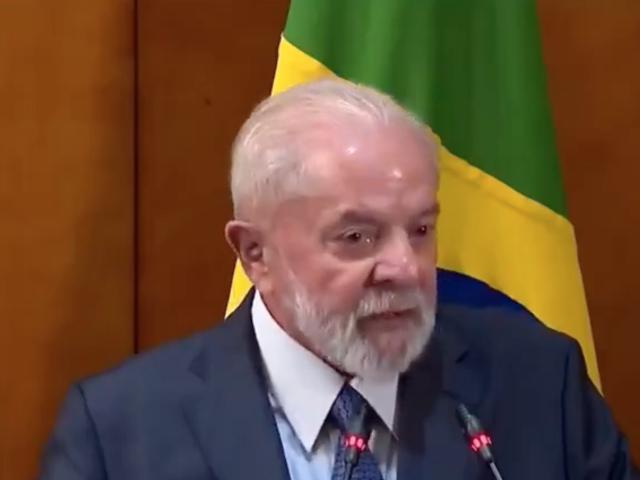In a recent development that has sparked significant controversy and international dialogue, Brazilian President Luiz Inácio Lula da Silva has initiated a diplomatic maneuver by recalling Brazil's ambassador to Israel. This action underscores a growing tension between Brazil and Israel, following President Lula's provocative comparisons between Israel's military actions against Hamas and the Holocaust. Such comments, made during the African Union Summit, have been met with strong condemnation from Israeli officials, highlighting a deepening rift over historical interpretation and the boundaries of political discourse.
The heart of the controversy lies in President Lula's assertion at the African Union Summit, where he drew parallels between the plight of Palestinians in the Gaza Strip and the atrocities committed by Hitler against Jews during World War II. "What is happening in the Gaza Strip with the Palestinian people does not exist at any other historical moment," Lula remarked, making a direct comparison to the Holocaust, a statement that has ignited a firestorm of criticism.
Brazil expels the Israeli ambassador from their territory.
— 🇮🇱 Rick Smol 🇮🇱🎗️ (@RickSmol) February 19, 2024
Lula has taken Brazil to the seventh circle of hell. https://t.co/bc7qFEObr7
Israel's response was swift and pointed, with Foreign Minister Israel Katz taking the extraordinary step of publicly reprimanding the Brazilian ambassador at Yad Vashem, Jerusalem's Holocaust Memorial and Museum. This departure from traditional diplomatic protocols, where such rebukes typically occur at the Foreign Ministry, was emblematic of the gravity with which Israel views the comparison. Katz demanded a retraction and apology from President Lula, denouncing the remarks as a "serious antisemitic attack" and an affront to the memory of the Holocaust.
JUST IN: 🇧🇷 Brazil ends all diplomatic relations with Israel.
— BRICS (@BRICSinfo) February 19, 2024
President Luiz Inácio Lula da Silva has withdrawn its ambassador from Israel. pic.twitter.com/x15kcyBxSO
During the ambassador's visit to Yad Vashem, Katz emphasized the importance of understanding the historical and moral chasm that separates the genocidal horrors of the Holocaust from the contemporary conflict between Israel and Hamas. By guiding the ambassador through the Book of Names, a comprehensive record of Jews murdered during the Holocaust, Katz sought to underscore the uniqueness of the Holocaust's tragedy and the inappropriateness of drawing such parallels.
2/2 Comparing a nation that fights against a murderous terrorist organization with the actions of the Nazis in the Holocaust deserves full condemnation. It is sad that the President of Brazil has descended to such a low point and engaged in extreme Holocaust distortion.
— Dani Dayan (@AmbDaniDayan) February 18, 2024
The fallout from President Lula's comments has not been limited to diplomatic channels. Dani Dayan, Chairman of Yad Vashem, expressed profound disappointment, labeling the Brazilian leader's statements as a distortion of the Holocaust and an expression of clear antisemitism. Dayan's criticism is particularly poignant given Brazil's aspirations to join the International Holocaust Remembrance Alliance (IHRA), an organization dedicated to the memory of the Holocaust and the prevention of antisemitism. By comparing Israel's defensive actions against terrorism to the systematic extermination of 6 million Jews, Lula not only misrepresents historical facts but also crosses a red line defined by the IHRA's working definition of antisemitism.
This incident has illuminated the complex interplay between historical memory, political rhetoric, and international relations. The sharp rebuke from Israel, characterized by the symbolic use of Yad Vashem as a venue for diplomatic censure, underscores the sensitivity surrounding the Holocaust's legacy and the imperative to confront antisemitism in all its forms. As this diplomatic drama unfolds, the international community watches closely, reminded of the enduring power of history to shape contemporary politics and the paramount importance of safeguarding the truth against distortion and misuse.


